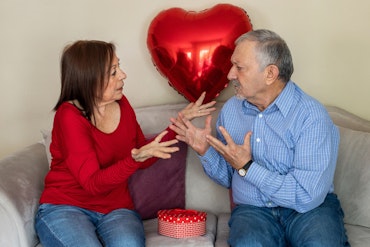Seniors’ adoption of care robots is influenced by cultural attitudes
Would you trust a robot to care for an older loved one? Beep boop.
![<p>A new study revealed that Australia isn’t the only country struggling with aged care workforce shortages. [Source: Shutterstock]</p>](https://agedcareguide-assets.imgix.net/news/articles/wp/carerobotics.jpg?fm=pjpg&format=auto&w=550&q=65)
A new study revealed that Australia isn’t the only country struggling with aged care workforce shortages. [Source: Shutterstock]
Key points:
- Researchers surveyed people across Japan, Finland and Ireland to determine whether the slow adoption of care robotics had been a cultural concern
- Older people, their families and caregivers in Japan were most likely to support care robot adoption — 77.1 percent of respondents were willing to use care robotics, followed by Ireland, 70.3 percent; with Finland the least willing at 52.8 percent
- The dementia prevalence rate in Japan is expected to hit 25 percent in people over the age of 65 within the next 25 years
Following the release of the Intergenerational Report 2023 by the Australian Federal Treasury, it became clear that Australia’s future would be older, with greater life expectancy and a heightened need for aged care. Existing workforce shortages have prompted intervention from the Federal Government, including a mandated pay increase in the 2023 – 2024 Budget and a renewed pivot to accommodating the future needs of the nation.
However, Australia was far from the only country facing a similar predicament — Japan’s title as the second oldest population in the world is set to follow a similar trajectory, with declining birth rates reported annually. Japan’s Prime Minister was quoted as saying that Japan was “[…] on the verge of whether we can continue to function as a society,” in January, after an 800,000 birth rate drop had been reported in 2022.
The answer? Care robots.
Researchers from Japan’s Chiba University assessed the attitudes of older people, their families and caregivers across three countries regarding the adoption of robots to assist with care.
Lead researcher Professor Sayuri Suwa explained why it was important to determine how people felt about the use of care robots and why it mattered for the future of the sector.
“Today, in Japan’s super-aged society, various care robots, including monitoring cameras, have been developed and marketed to compensate for the shortage of care staff and to alleviate their stress,” Professor Suwa said.
“However, there are no discussions among users — older people, family caregivers and care staff — and developers, regarding the willingness to use care robots, the protection of privacy and the appropriate use of personal information associated with the use of care robots.
“The desire to improve this situation and to promote appropriate utilisation of care robots beyond Japan was the impetus for this research.”
The study assessed people’s concerns about care robots across four general categories to determine how willing a person would be for increased adoption in aged care:
- Acquisition of personal information
- Use of personal information for medical and long-term care
- Secondary use of personal information
- Participation in research and development
Researchers found that participation in co-designing and co-producing care robots and assisting developers could ultimately increase the willingness of participants and potential adoption.
To check out the study for yourself, head over to ScienceDirect to read more. For all of your care news and updates, subscribe to the Talking Aged Care newsletter and let us know your thoughts on modern tech in the industry!























